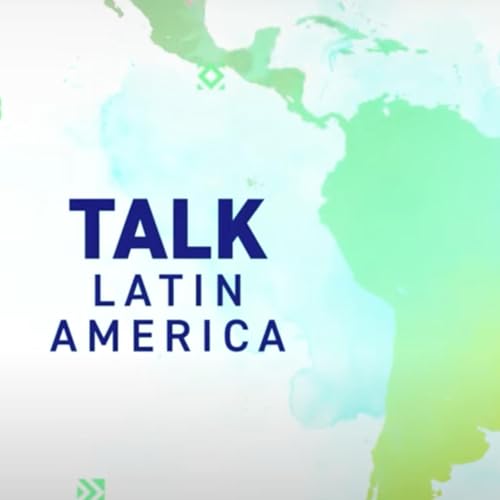In this edition, we dive deep into the forces reshaping Latin America’s economic landscape with renowned economist Otaviano Canuto—former senior official at the IMF, World Bank, and Inter-American Development Bank, now a leading policy expert analyzing economic development and global finance at the Policy Center for the New South and Brookings Institution.Together with co-host Michele Marinho, Latin America Editor at CGTN, this conversation delivers essential analysis for anyone invested in—OR curious about—the future of the region’s economies, political shifts, and international relations.Este episodio también habla sobre temas que impactan a toda la región ¡Bienvenidos a nuestra audiencia de ambos lados del Atlántico y en las Américas!Episode Highlights:In an era of evolving global trade and geopolitical tensions between the U.S. and China, Otaviano Canuto unpacks:- How Latin American economies must navigate competing pressures from Washington and Beijing.- The contrasting approaches: China's “carrots” (investment, trade) vs. the U.S.’s “sticks” (sanctions, tariffs).- The region’s progress on macroeconomic stabilization amidst inflation, debt, and inequality.- Lessons from policy success stories in education in Brazil and Vietnam, demonstrating the potential of incentive-based reforms.- The persistent governance and security challenges, including the dire situation in Haiti—which demands regional cooperation and better institutional integrity.- The critical role of cross-national collaboration against organized crime.- The social cost of inequality, and the urgent need to boost human capital and inclusive growth.- Geopolitical Balancing Act: Latin America is increasingly caught between U.S. pressure to curb ties with China and the attractive investment/trade opportunities that Beijing provides. - “Countries are walking a very thin line,” says Canuto—requiring nuanced diplomacy and diversified strategies.- Trade and Investment Trends: China is now the principal trading partner for nearly all South American countries, investing heavily in infrastructure and energy, while the U.S. remains a key player but with a changing approach.- Policy and Governance: Strong governance and transparency are paramount—especially to combat corruption, empower effective public spending, and tackle organized crime.- Educational Innovation: Groundbreaking models like Brazil’s Ceará program show that performance-based incentives for teachers significantly raise educational standards, an example relevant to emerging and developed economies alike.- Macro Stability with Persistent Risks: Most of the region has improved policy management, but persistent inequalities, political polarization, and unresolved crises (notably in Argentina, Venezuela, and Haiti) are urgent challenges.- Inclusive Growth Required: Investment in human capital (especially early childhood education) and targeted reforms are crucial to unlocking the region’s potential.- Haiti’s Crisis as a Regional Test: The humanitarian and governance crisis in Haiti underscores the need for integrated, regional support and authentic inclusive strategy, beyond piecemeal aid.- Proactive Leadership & Communication: The trajectory of Latin America’s economies—within shifting global alliances—will be shaped by its capacity to communicate its priorities and collaborate across borders.About the Guest:Otaviano Canuto A leading voice in economic policy, Canuto draws on decades of hands-on experience across Latin America and globally. His pragmatic, bicultural perspective offers actionable insights to professionals, diplomats, NGOs, academia, policymakers, journalists, and multinationals invested in or working with the region.
 Sep 24 202521 mins
Sep 24 202521 mins Sep 17 202526 mins
Sep 17 202526 mins 17 mins
17 mins
